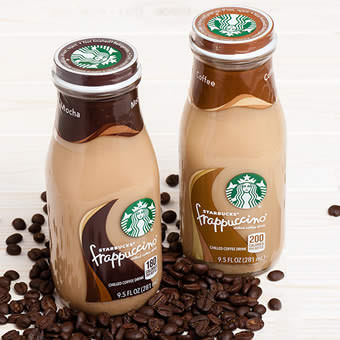In today's diligent consumer landscape, the demand for morally sourced and also sustainable products has risen. Private label food manufacturers have become trailblazers in this domain name, typically teaming up with contract food makers to spearhead sustainability as well as accountable sourcing initiatives. With a tenacious commitment to ecological principles, exclusive label brands have made it their goal to supply sustainable, top notch alternatives to customers.
Private Label Food Manufacturers
In recent times, private label food manufacturers, also called own brand names or store brands, have experienced an impressive surge in popularity. These suppliers produce items marketed under the logo of a retailer, grocer, or personal entity. What sets private-label products apart is their capacity to use competitive prices without jeopardizing on top quality.
Contract Food Manufacturers
Numerous private-label food makers sign up with pressures with agreement producers to establish their product lines. Contract food manufacturers are professionals in creating foodstuff for private labels. This strategic collaboration permits personal label business to tap into the know-how, sources, and also committed food production centers of their partners.
Sustainability at the Core

Private label food manufacturers utilize numerous strategies to improve sustainability within their supply networks:
Ethical Sourcing:
Personal label firms are progressively devoted to sourcing ingredients according to moral and reasonable trade requirements. This involves ensuring that producers as well as employees of resources, such as coffee beans, seasonings, or chocolate, obtain fair compensation for their efforts.
Local Sourcing:
Focusing on local sourcing of active ingredients is another characteristic of private-label food manufacturers. This not just decreases the carbon impact connected with transport but also supports regional farmers and areas.
Organic Contents:
With the organic food market on the rise, private tags are responding by including organic components right into their product. Organic farming techniques focus on dirt health while eschewing synthetic chemicals as well as fertilizers.
Sustainable Fish and shellfish:
Private Label Food Manufacturers are persistent in guaranteeing that the seafood they make use of is sustainably gathered, sticking to standards established by companies like the Marine Stewardship Council, which advertises responsible fishing.
Minimized Food Waste:
Personal label companies are proactively working with decreasing food waste by executing efficient manufacturing processes and establishing items with longer shelf lives. Some brand names are also partnering with food rescue companies to give away surplus food to those in requirement.
Eco-Friendly Packaging and also Efforts
Sustainability initiatives by private-label food makers extend past sourcing active ingredients to incorporate product packaging and green efforts:
Sustainable Product packaging:
Exclusive label brand names have accepted green product packaging options, including recyclable, naturally degradable, or compostable materials. Revamping product packaging to decrease excess product and minimize ecological influence is a top concern.
Waste Decrease:
To lessen wastefulness, private label food manufacturer private-label food producers optimize item sizes, decrease excess product packaging, and explore innovative product packaging solutions. Some brand names also motivate consumers to take part in reusing programs.
Energy Effectiveness:
Many exclusive label makers are purchasing even more energy-efficient manufacturing plants, minimizing water use, as well as taking on renewable resource sources to even more decrease their ecological impact.
Carbon Neutral Initiatives:
Some personal brand name food suppliers are taking enthusiastic actions to accomplish carbon nonpartisanship by offsetting their greenhouse gas emissions with reforestation tasks and also renewable energy credits.
Challenges and also the Roadway Ahead
Despite the substantial strides made in sustainability and liable sourcing, private-label food producers encounter obstacles. Stabilizing sustainability with cost-effectiveness can be a delicate act, sometimes needing compromises on sustainable active ingredients or the exploration of environmentally friendly alternatives.
However, the future of private-label food manufacturing holds excellent promise. As customer understanding as well as need for lasting items remain to rise, private-label brands and their contract food manufacturing partners are most likely to heighten their efforts. Cooperation with suppliers and investment in sustainable technological developments as well as openness will certainly be crucial fit a sustainable future for the sector.
Frequently Asked Inquiries
Q1: What are private label food manufacturers?
Private label food manufacturers create items marketed under the logo of a retail store, grocer, or exclusive entity. They provide competitively valued products without compromising on quality.
Q2: How do private label food manufacturers advertise sustainability?
Private label food manufacturers promote sustainability through moral sourcing, local component purchase, the use of natural active ingredients, sustainable fish and shellfish practices, and initiatives to decrease food waste.
Q3: What green packaging choices do private label brands use?
Personal label brands adopt environmentally friendly packaging alternatives such as recyclable, eco-friendly, or compostable products. They likewise revamp product packaging to decrease excess material as well as reduce ecological impact.
Q4: What tests do private label food manufacturers face in sustainability initiatives?
Balancing sustainability with cost-effectiveness is a significant obstacle for private label food manufacturers. This might need concessions on lasting ingredients or the exploration of green alternatives.
Final thought
Private label food manufacturers go to the forefront of the sustainability and also liable sourcing movement within the food sector. Their dedication to honest sourcing, regional purchase, organic active ingredients, and also sustainable methods, along with their commitment to eco-friendly product packaging and waste reduction efforts, show their determination to fulfill the needs these days's eco-conscious customers.

In spite of the difficulties they deal with, private label food manufacturers are positioned for an encouraging future. With consumers significantly focusing on sustainability, the market is most likely to witness even higher collaboration with suppliers, investment in sustainable modern technologies, and also a commitment to openness. As we move on, private label food manufacturers will remain to play a crucial role in shaping a much more lasting and ethical food landscape for all.